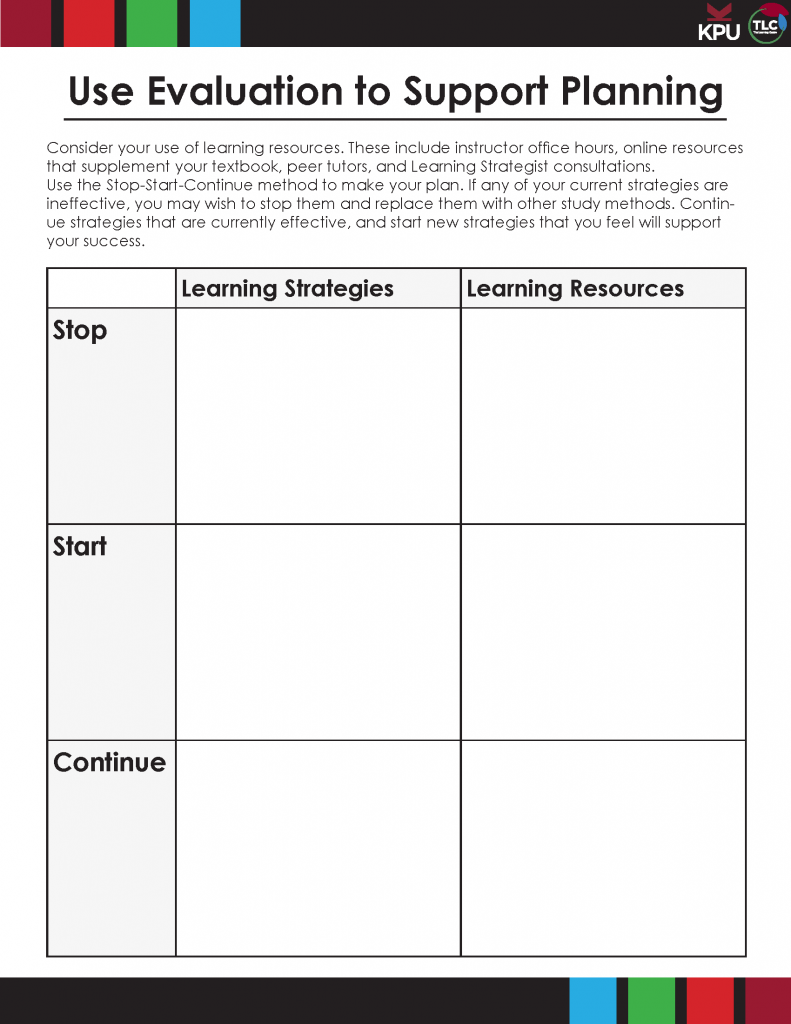45
“We all need people who will give us feedback. That’s how we improve.” – Bill Gates
During the learning process, we have many opportunities to receive feedback about the quality of our learning and work. In the university environment, this often comes in the form of grades and instructor comments on assignments and exams. By using this feedback to evaluate your learning strategies in light of your goals, you will be able to make adjustments to move you towards your goals in current and future courses.
Reflecting mid-semester
An excellent time for self-evaluation is after you have received feedback on your first midterm exam or major assignment. Consider the following reflection questions at this stage in your course:
- What grade do I hope to achieve in this course? ________
- To what extent am I meeting my goal for the course at this point?
- What about my exam/assignment preparation worked well?
- What about my exam/assignment preparation did not work well? What do I want to change?
- How will what I have learned help me in the second half of the course?

Reflecting at the End of a Course
The completion of a course is also an excellent time for reflection and evaluation. In addition to the questions in the midterm evaluation, consider the following:
- How will what I have learned help me in my next courses?
- How will I use what I have learned in my future career and other aspects of my life?
By reflecting on feedback and evaluating your learning regularly, you will avoid getting stuck in unproductive patterns. You will contribute to your own ongoing personal growth and development, supporting your success in future courses and other life endeavours.
Try it!
Download the evaluation template to support you in the process of reflecting and moving ahead.
Licenses and Attributions:
Content previously published in University 101: Study, Strategize and Succeed by Kwantlen Polytechnic University, licensed as CC BY-SA.
- Chen, P., Chavez, O., Ong, D. C., & Gunderson, B. (2017). Strategic resource use for learning: A self-administered intervention that guides self-reflection on effective resource use enhances academic performance. Psychological Science, 28(6), 774–785. https://doi.org/10.1177/0956797617696456; ↵
- Tanner, K. D. (2012). Promoting student metacognition. Cell Biology Education, 11(2), 113–120. https://doi.org/10.1187/cbe.12-03-0033 ↵
